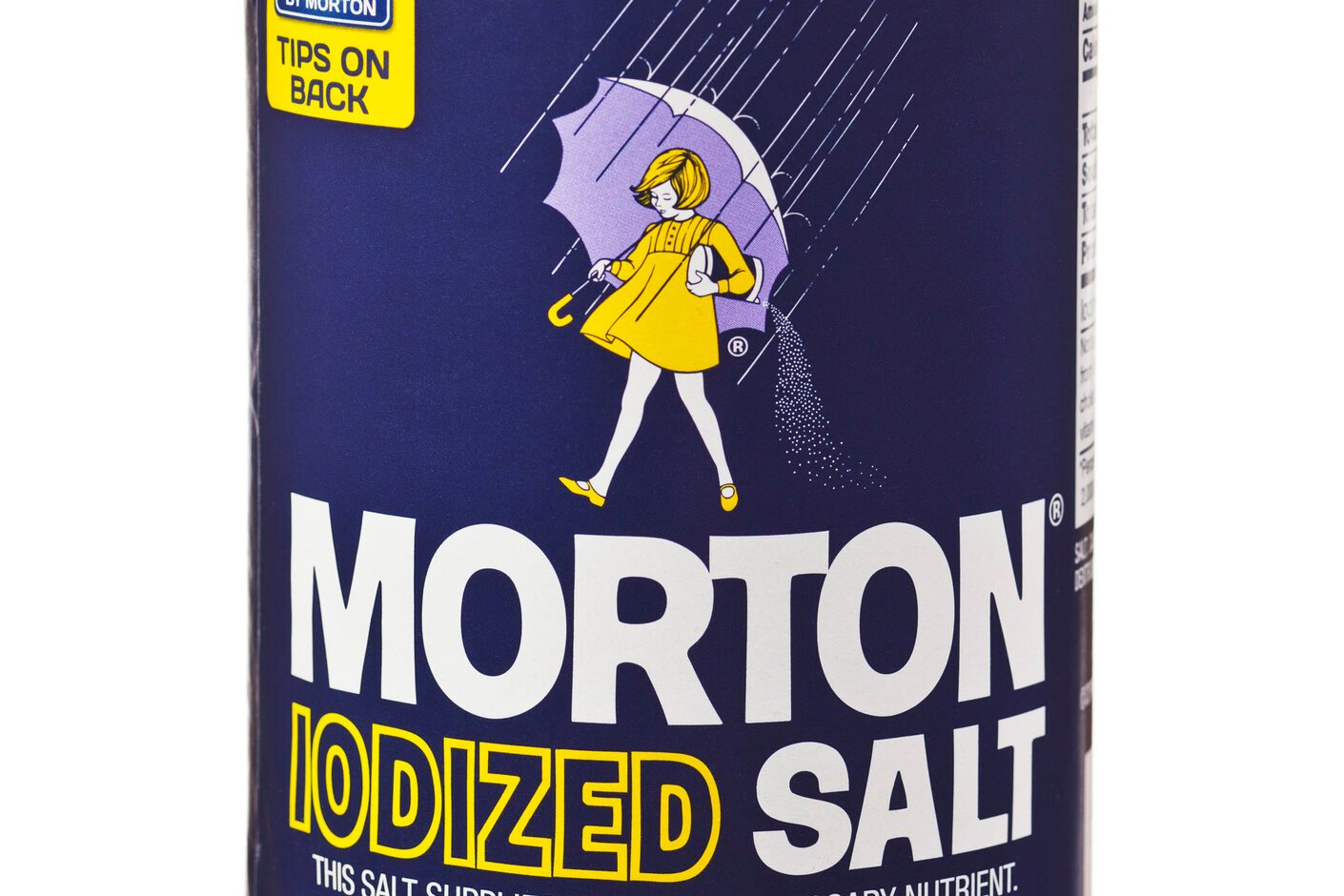They're known for their rainy-day branding, but it's possible some consumers discovered a sprinkle that wouldn't be safe for everyone.

A Major Salt Brand’s Recall of Nearly 10,000 Products Warns of Consumer Risk

National data in the past decade have shown that a remarkable 90% of Americans, including children, eat too much sodium. One reason this is of medical concern is because sodium hardens the blood vessels and forces the heart to work harder, contributing to high blood pressure.
Even if you’ve got a good handle on your sodium intake, a major salt maker’s recall may be a reminder that even some the biggest brands commit labeling mixups that you might not even be aware of until they’re on your plate.
According to a January 31 notice from the U.S. Food and Drug Administration (FDA), earlier in 2024 Morton’s Salt had recalled 1,423 wholesale cases of Windsor Black Peppercorns after discovering that those bottles actually contained pink Himalayan salt. Though the bottles were made of glass and the contents were visible, it seems that a total of 8,538 incorrectly labeled bottles of product went undiscovered until after distribution. The FDA’s notice reports that the products were distributed in Canada.
For individuals with high blood pressure, kidney disease, or heart problems, unknowingly adding salt to meals could exacerbate those conditions. Two weeks after the initial recall announcement, the FDA categorized this as a Class III recall, which is considered the FDA’s lowest risk level and defined as “a situation in which use of, or exposure to, a violative product is not likely to cause adverse health consequences.”
Morton Salt Inc., a Chicago-based firm, is known for its iconic 1914 logo, which features a young girl holding an umbrella in the rain while freely spilling salt on the ground. The affected bottles featured this classic branding and can be identified using the following information, via the FDA:
- 34-gram grinder bottles
- 6 units per wholesale case
- Universal Product Code (UPC): 0 66010 08200 9
- Lot Code: ZX23060001
According to a 2011 report by AIB International, a food safety resource hub, 43% of food product recalls were due to product mislabelling. The source explained that many of these errors in that period were attributable to a rapid manufacturing and packaging pace, which rendered manual inspections ineffective. More recently, issues like facility cleanliness, microbial issues, and undeclared allergens have grown to be more frequent causes for recalls.
Separate from food safety, national guidelines suggest a maximum sodium intake of 2,300 milligrams for most healthy Americans.
For daily wellness updates, subscribe to The Healthy by Reader’s Digest newsletter and follow The Healthy on Facebook and Instagram. Keep reading:


















